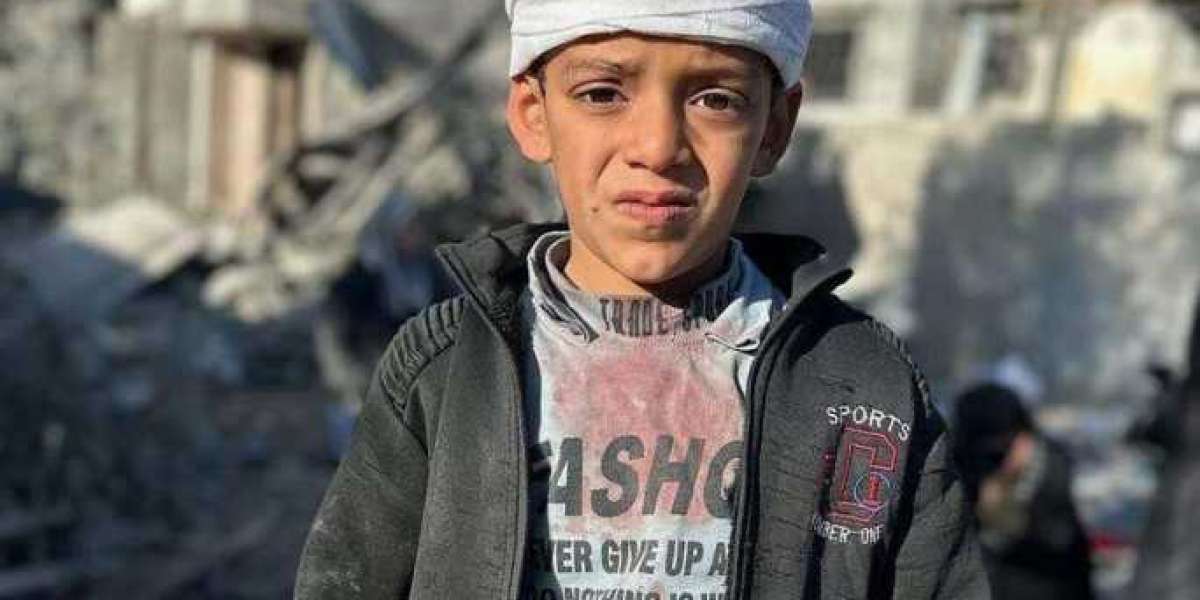Humanitarian aid plays a critical role in reducing suffering and providing basic needs to those affected by poverty, conflict, and disasters. Millions of people around the world face extreme hardships due to natural calamities, wars, economic downturns, and health crises. In such situations, aid organizations step in to offer relief. One such organization is Seven Spikes Relief, which is dedicated to supporting vulnerable communities by addressing their immediate needs and helping them rebuild their lives.
We will explore how aid helps alleviate suffering and provide basic necessities, focusing on the contributions of Seven Spikes Relief in the context of global humanitarian efforts.
The Importance of Aid in Crisis Situations
When people face crises, such as war or natural disasters, their lives are upended, leaving them with little to no access to food, clean water, shelter, or healthcare. In these situations, aid organizations like Seven Spikes Relief play a vital role in providing immediate relief, preventing further loss of life, and helping people recover.
Addressing Hunger and Malnutrition
One of the most immediate and pressing needs during crises is access to food. Without sufficient nutrition, individuals—especially children—can suffer from malnutrition, leading to long-term health problems and even death. Aid organizations provide food packages, emergency rations, and other nutritional support to alleviate hunger.
Seven Spikes Relief has been particularly active in providing food aid to affected communities. Their food distribution programs ensure that people in crisis receive enough sustenance to survive and maintain their health. The organization works with local partners and volunteers to reach areas most in need, whether in conflict zones or regions devastated by natural disasters.
Providing Access to Clean Water
In times of crisis, access to clean and safe drinking water is often disrupted. Contaminated water can lead to outbreaks of waterborne diseases like cholera, which can spread rapidly in already vulnerable populations. Aid organizations work to provide clean water through the installation of wells, water purification systems, and the distribution of bottled water.
Seven Spikes Relief places a strong emphasis on ensuring access to clean water in the areas they serve. Through their water projects, they have been able to provide safe drinking water to communities, reducing the risk of disease and improving overall health conditions. Access to clean water is not only essential for drinking but also for cooking, hygiene, and sanitation.
Meeting Basic Shelter and Clothing Needs
Many crises leave families displaced, homeless, or living in inadequate shelters. Without proper housing, people are exposed to harsh weather conditions, unsafe environments, and health risks. Humanitarian aid focuses on providing temporary shelters, such as tents and makeshift homes, until long-term solutions can be found.
Seven Spikes Relief has been instrumental in offering shelter assistance to displaced populations. By providing tents, blankets, and other essential items, they ensure that affected families have a safe and secure place to live while they rebuild their lives. In addition to shelter, the organization also provides clothing, particularly during winter months, when cold temperatures can pose significant risks to vulnerable individuals.
Access to Healthcare and Medical Services
Health crises often accompany other emergencies, making access to medical care a priority. Many people in crisis situations are at risk of injury, illness, or long-term health issues that require immediate attention. Aid organizations work to set up temporary medical facilities, distribute medicine, and provide essential healthcare services to those in need.
Seven Spikes Relief partners with local medical professionals and international healthcare organizations to provide medical aid to affected populations. This includes setting up mobile clinics, delivering essential medicines, and providing maternal and child health services. Ensuring access to healthcare not only helps save lives but also reduces the spread of diseases and improves overall well-being in crisis-stricken areas.
Mental Health and Psychosocial Support
Beyond physical health, mental health support is a critical aspect of humanitarian aid. People affected by crises often experience trauma, grief, and anxiety, which can hinder their ability to cope and recover. Aid organizations like Seven Spikes Relief recognize the importance of mental health and provide psychosocial support through counseling, group therapy, and community activities.
Psychosocial support helps individuals process their experiences, regain a sense of normalcy, and develop coping mechanisms for the future. By addressing both physical and mental health needs, Seven Spikes Relief ensures that affected populations have a holistic approach to recovery.
Long-term Development and Resilience Building
While emergency aid focuses on immediate relief, it is equally important to support long-term development and resilience in affected communities. Without sustainable solutions, people may remain dependent on aid indefinitely, trapped in cycles of poverty and vulnerability. Aid organizations, including Seven Spikes Relief, work to provide the tools and resources necessary for people to rebuild their lives and become self-sufficient.
Livelihood Support and Education
One of the key areas of focus for Seven Spikes Relief is helping people regain their livelihoods. This can involve providing vocational training, distributing tools and equipment, and offering financial assistance for small businesses. By restoring livelihoods, aid organizations enable individuals and families to support themselves and their communities, reducing their reliance on external assistance.
Education is another crucial aspect of long-term development. In many crisis situations, children are unable to attend school, either due to displacement or the destruction of educational infrastructure. Seven Spikes Relief works to provide access to education through temporary schools, scholarship programs, and the rebuilding of educational facilities. Education is essential for empowering the next generation and ensuring that they have the skills and knowledge necessary for a brighter future.
Building Community Resilience
In addition to individual support, building community resilience is key to preventing future crises. This involves strengthening local infrastructure, improving access to resources, and developing systems for early warning and disaster preparedness. Seven Spikes Relief works with communities to enhance their ability to respond to future challenges, whether through improved agricultural practices, better water management, or more robust healthcare systems.
By fostering resilience, aid organizations help ensure that communities can withstand future shocks and reduce their vulnerability to crises. This long-term approach to aid is essential for breaking the cycle of poverty and suffering.
Conclusion
Aid plays a vital role in alleviating suffering and providing basic needs during crises. Organizations like Seven Spikes Relief are on the front lines, offering food, water, shelter, healthcare, and long-term development support to vulnerable populations. Through their efforts, they help people survive immediate challenges and rebuild their lives with dignity and hope for the future.
The impact of aid goes beyond just meeting basic needs; it restores a sense of security, empowers individuals to regain control of their lives, and strengthens communities. By supporting organizations like Seven Spikes Relief, we contribute to a global effort to reduce suffering and build a more resilient and equitable world.







